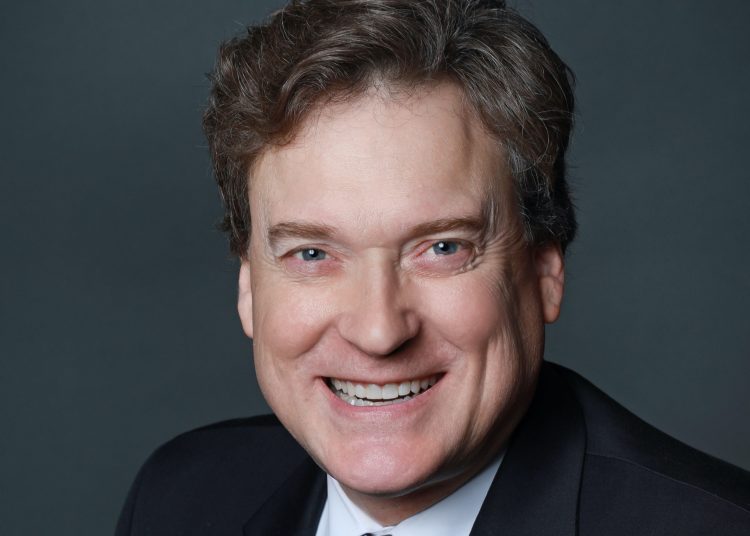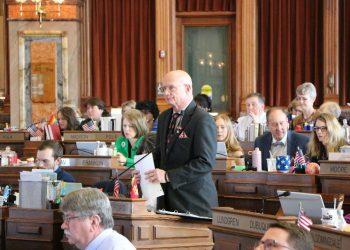(The Center Square) – State Rep. Jon Jacobsen, R-Council Bluffs, is seeking to establish specialty probate courts in Iowa.
Jacobsen, an attorney, vice president and senior trust officer, told The Center Square in a phone interview Tuesday that if the bill, House File 2268, passes, the Iowa Supreme Court would create two more probate courts in the state: one in an eastern county and one in a western county.
Qualified full-time associate probate judges would be dedicated to hearing trust law and probate law cases. That area of law, which most judges don’t have much experience in, has “a steep learning curve,” Jacobsen said.
Iowa would be among the first states in the Midwest to adopt specialty probate courts, he said.
Jacobsen said Iowa’s courts that singularly hear certain types of law have provided quicker, more accurate decisions.
“It brings in judges with a real degree of expertise having worked in these fields for so long who really understand the law both as it’s been codified and in common law to render some really excellent decisions that are best for Iowans,” he said.
Probate trust and estate law is becoming more and more important as the population of older Iowans is reaching record levels, prompting record wealth transfers, he said. Property values are soaring, and elder abuse is common.
Jacobsen said the addition of the two judges is an incremental step that will help address court delays. Some of his constituents, who live relatively close to the border with Nebraska, are running their cases in those courts.
Many people have probate assets in both states, he said. COVID-19 has contributed to court delays, and some families have been waiting three years for their cases to be resolved, he said.
Beneficiaries who receive their money more quickly will be able to contribute more to the economy, generating more tax revenue for the state, he said. In some cases, family settlements help businesses stay together and allow employees to keep jobs, he said.
“If you have fights between family members in these cases, a lot of times the businesses die because you have continuity provisions in these trusts and estates for how businesses are supposed to survive,” he said.
He said the state would need to hire two probate judges, whose salaries would mirror those of associate and district courts, but it would save millions of dollars through reducing judges’ misinterpretations of trust probate in the state of Iowa law that have been overturned at higher courts.
“I think we would recapture [the judges’ salaries] on a per annum basis with just five judgments that are done right at the district level that don’t have to be repealed,” he said.
The Iowa State Bar Association would vet judicial nominees and the governor would appoint judges, he said.
Jacobsen, the co-founder of the bipartisan Law Caucus, said the caucus will support the bill and success of specialty courts promotes the bill’s success. He anticipates an “almost unanimous vote” if the bill gets to the floor.
A Judiciary subcommittee unanimously advanced the bill Monday. Rep. Steve Holt, R-Denison, Judiciary Committee Chair, told The Center Square in a texted statement Tuesday that he believes the bill will run in committee Wednesday.
Iowa Academy of Trust and Estate Counsel Treasurer and Director Mike Nelson said the group “generally” is in favor of the bill and has desired having specialty probate judges for some time. Most appointed judges do not have a background in probate, estates, guardianship and conservatorship.
“We’ve always been advised by the Supreme Court that it’s a money issue, that they didn’t have the funds to put together a specialty court. … Getting court hearings is not always the easiest thing. Presumably, this would expedite that, which is something we’d all be in favor of,” he said.
Iowa Judicial Branch Communications Director Steve Davis told The Center Square in an emailed statement Tuesday his group remains undecided on the concept.
“Without an appropriation to fund the two associate probate judge positions required to create the new probate courts, two district associate judges currently hearing cases would need to be reassigned,” Davis said. “According to calculations using the workload formulas developed by the National Center for State Courts, the Iowa Judicial Branch is currently short 16 district associate judges based on the state’s caseload. We appreciate the legislature’s FY22 appropriation that enabled us to begin a five-year plan to address the district associate judge deficit. To remove district associate judges from the current docket would further strain Iowa courts’ ability to provide timely services. The subcommittee indicated that an amendment that includes an appropriation will be forthcoming.”















